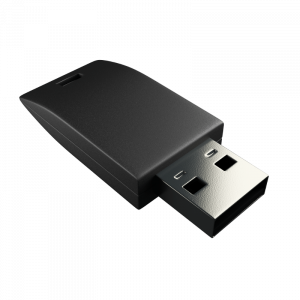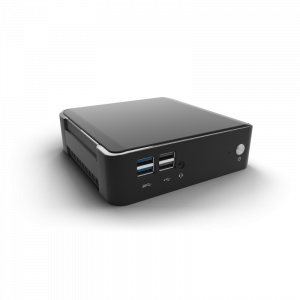Purism’s Guide to Security- Internet & Tech Decentralization
Latest posts by Rex M. Lee (see all)
During the proliferation of the internet in the 1990s, the internet was decentralized enabling free trade and commerce on an equal basis where content creators were free to publish anything at will.
Although the internet today is still theoretically decentralized, we cannot discount the fact that the internet, artificial intelligence (AI), and connected technology have been centralized by a handful of multinational corporations that include Google, Apple, and Microsoft.
Google, Apple, and Microsoft control access to internet trade and commerce by way of their operating systems that support intrusive apps while controlling app distribution.
Google, Apple, and Microsoft control app distribution by way of preinstalled app agreements and third-party app distribution via Google Play, Apple App Store, and Microsoft Windows App Store.
Preinstalled app agreements enable Microsoft, Google, and Apple to sell access to their OS end users to tech giants that include Meta (Facebook), Amazon, Twitter, and ByteDance (TikTok) leading to a handful of companies that control access to internet trade and commerce.
Furthermore, products and services supported by AI such as generative pretrained transformers (Chatbots) are being centralized by the same tech giants that dominate internet trade and commerce such as Alphabet (Google), Microsoft, Meta, and ByteDance.
Their operating systems, intrusive apps, social media platforms, and AI support billions of smartphones, tablet PCs, connected products and PCs.
Today only a handful of multinational corporations control access to internet trade and commerce while having the authority to control AI, the publishing of content, ideas, news, entertainment, music, books, and political viewpoints leading to internet and technology centralization.
Internet and technology centralization has led to the proliferation of predatory surveillance and data mining business practices that are rooted in “Surveillance Capitalism”.
- “It is no longer enough [for big tech] to automate information flows about us; the goal now is to automate us.”- Shoshana Zuboff, The Age of Surveillance Capitalism
What is Internet and Technology Centralization?
Centralization is a business model that delegates decision-making power to a central point of authority such as a group of companies where a few people in power make all the decisions.
Centralization can occur across many industries such as tech where a handful of companies control access to internet trade and commerce.
Over the past 20 years the tech industry has been centralized by Google, Apple, and Microsoft by way of the operating systems that support smartphones, PCs, and connected products coupled with the control over application (app) distribution.
There are many benefits to centralization such as intuitive and easy to use operating systems, web browsers, apps, social media, and artificial intelligence (AI).
There are also many threats posed by internet and technology centralization which are highlighted below:
- The Loss of Security, Privacy, and Safety Associated with Technology
- Surveillance Capitalism- Predatory Surveillance and Data Mining Business Practices
- Ad-Based Operating Systems (Leaky Operating Systems)
- Intrusive Apps (Legal Malware)
- Predatory Terms of Service (Cyber-enslavement Agreements)
- Brain Hijacking Technology (Addictive Apps & Social Media Platforms)
- Manipulative Advertising Technology
- Weaponized AI
- The Loss of Competition and Innovation
- Collusion Between Tech and Government
- Forced Participation within Predatory and Harmful Business Practices
- Oppressive Business Practices (Consumer Exploitation, Censorship, Deplatforming, etc.)
- Tech-based Hybrid Warfare
Before we understand how to protect ourselves from these threats, we first must understand the importance of civil liberties such as privacy.
Why Privacy Matters
Today people have been desensitized by tech giants such as Google, Apple, and Microsoft to discard the importance for human rights such as privacy.
For example, a smartphone owner loses their security and privacy when they click on “I agree” to accept the predatory terms of service that support operating systems, apps, social media platforms, and cloud storage services.
As a result, there are no secure or private smartphones, tablet PCs, connected product, or PCs that are supported by the Android OS, Apple iOS, or Microsoft Windows according to T-Mobile and Verizon.
- “We, too, remember a time before smartphones when it was reasonable conclude that when you activated service with T-Mobile that only T-Mobile would have access to your personal information. However, with the Samsung Galaxy Note, the iPhone, and many other devices, there are indeed a variety of parties that may collect and use [your] information.”– T-Mobile Privacy Team/Response to FCC Consumer Complaint (#423849)
According to the framers of the U.S. Constitution, such as James Madison, privacy is the cornerstone of freedom, for without privacy there is no freedom which is why the U.S. Bill of Rights addresses privacy.
There are amendments that guarantee privacy which include the following:
- The First Amendment provides the right to keep religious beliefs private.
- The Third Amendment protects the zone of privacy within a home.
- The Fourth Amendment protects the citizen from unreasonable search and seizures by the government.
- The 14th Amendment guarantees privacy regarding procreation, childrearing, marriage, and medical treatment termination.
The number one human right under attack today is the right to privacy, which is the most important human right according to many framers of the U.S. constitution.
Not only is privacy important to individuals, but privacy is equally important to businesses and government.
There are many security, privacy, safety, and civil liberty threats associated with the loss of privacy that need to be addressed by individuals, businesses, and governments.
Over the past 15 years people have inadvertently given multinational companies, including those from China and Russa, access to their confidential information that includes:
- Personal Information
- Business Information
- Medical and Health Information
- Legal Information
- Employment Information
- Information about Family and Friends, and so on…
Privacy is not the only civil liberty people are giving up to multinational corporations, human rights such as free speech, freedom of the press, and the right to assemble peacefully are also under attack due to the rise of “Surveillance Capitalism”.
- “Privacy is an inherent human right, and a requirement for maintain the human condition with dignity and respect”― Bruce Schneier, Cryptographer/Computer Security Expert
The Solution- Decentralized Security Strategy & Guide
Businesses, organizations, and government agencies need to adopt a top/down decentralized security strategy to secure the boardroom, C-suite, management, frontline employee, elected/government official, and frontline government employee.
Security and privacy professionals talk about decoupling from big tech and/or internet centralization while Purism provides a guide supported by real solutions.
Purism’s comprehensive guide to decentralization requires the adoption of a top/down security strategy supported by the following:
- Security Briefing, Needs Analysis, and Guide to Decentralization
- PureOS Supported by Decentralized Apps
- Liberty Phone Supported by PureOS and Made in the USA Electronics
- Librem 14 Laptop Supported by PureOS
- Librem Enterprise Business PCs and Servers
- Librem One Suite of Decentralized Services
- Librem AweSIM for Private Smartphone Voice & Data Services
- Librem Secure PC and Smartphone Bags & Sleeves
Contact Purism for more information at: info@puri.sm
Purism Products and Availability Chart
| Model | Status | Lead Time | ||
|---|---|---|---|---|
 | Librem Key (Made in USA) | In Stock ($59+) | 10 business days | |
 | Liberty Phone (Made in USA Electronics) | In Stock ($1,999+) 4GB/128GB | 10 business days | |
 | Librem 5 | In Stock ($799+) 3GB/32GB | 10 business days | |
 | Librem 11 | In Stock ($999+) 8GB/1TB | 6+ weeks | |
 | Librem 14 | Out of stock | New Version in Development | |
 | Librem Mini | Out of stock | New Version in Development | |
 | Librem Server | In Stock ($2,999+) | 45 business days | |
 | Librem PQC Encryptor | Available Now, contact sales@puri.sm | 90 business days | |
 | Librem PQC Comms Server | Available Now, contact sales@puri.sm | 90 business days |
Recent Posts
Related Content
- A Quarter Century After Cyberselfish, Big Tech Proves Borsook Right
- PureOS Crimson Development Report: November 2025
- Purism Liberty Phone Exists vs. Delayed T1 Phone
- PureOS Crimson Development Report: October 2025
- Landfall: A Case Study in Commercial Spyware


